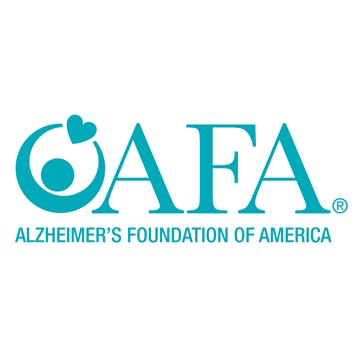Why does Sangre de Cristo focus its care on the whole family?
The physical, emotional and spiritual complications of terminal illness affect everyone who is part of the patient’s life. Our goal is to look at the patient and family together – and to reduce the pain and worry for all.
What if the patient can’t be cared for at home?
Sometimes a patient needs the intensive care that can only be provided at our Hospice House, Joni Fair Hospice House. Patients are able to stay at the facility for short periods of time when symptoms or pain can’t be managed at home, when direct transfers from acute care hospitals occur or when a family needs a brief respite from home care responsibilities.
The in-patient hospice staff has developed expertise in pain and symptom management and continues to deliver the coordinated care, outstanding services and the compassionate support that the patients receive in their homes.
Although the extensive medical and nursing care being given at the Joni Fair Hospice House, it doesn’t look like a hospital or operate like one. The facility has a home-like décor, a living room and dining room, comfortable furnishings and an outdoor courtyard. There are no visiting hour restrictions, and families can even stay overnight.
How will Hospice work with my doctor?
The Sangre de Cristo Hospice team works under the guidance of either your physician or one of ours. The doctor sees and approves all plans of care, is invited to team conferences, and continues to provide primary medical services.
Who will care for our family at home?
You will be given a specific team that is required for treatment by all hospice providers. Known as the Inter-Disciplinary Team (IDT), the group meets weekly and works together under the supervision of the physician to design and implement a specific plan for your family’s special needs – an uncommon approach in most healthcare settings. Hospice care is provided by the IDT which includes at least the following members as described below.
Nurse
Each patient and family is assigned a Registered Nurse/Case Manager who will coordinate the delivery of care. The nurse will be there as often as necessary as an extension of your physician, to monitor and manage pain and symptoms. They will also educate the family on what to expect and how to help.
Certified Nursing Aide
A Certified Nursing Aide/Assistant (CNA) may make regular visits to assist patients with activities of daily living such as bathing, shaving, shampooing, and the changing of patients’ bed linens if needed.
Medical Social Worker
A Medical Social Worker can serve as liaison to other community resources that may be helpful to patients and families — with specific help on family relationships, the stress of the illness, financial or legal issues and more.
Chaplain
A Pastoral Care Worker/Chaplain is available for those who request spiritual assistance and support. Spiritual Care can be provided either directly by a staff Hospice Chaplain or by coordinating with other community clergy.
Specially-Trained Volunteer
Specially-Trained Volunteers are available to provide hand and foot messages, different types of therapies and companionship – someone to talk with, someone to listen and a friend to lean on.
How is hospice care services paid for?
Medicare and Medicaid patients are fully covered for all Sangre de Cristo Hospice services related to their terminal illness, under the hospice benefit.
Private insurance and HMO plans will often cover hospice services through a specific hospice benefit or through hospital, home health or private duty benefits. Families are responsible for any remaining balance unpaid by insurers. Medicare patients have no out of pocket expenses.
It has been proven that hospice care is substantially less expensive than the typical cycle of hospitalization and home health agency care. A Sangre de Cristo Hospice Admissions Coordinator will help you determine your eligibility for Medicare or insurance benefits and if necessary assist in finding resources for your family.
We serve all who need us, without regard for their ability to pay. We can help families without resources, based upon an ability-to-pay sliding scale. This commitment is made possible by the generous and compassionate support of individuals and corporations who make donations to Sangre de Cristo Hospice.
In 1985 when Sangre de Cristo Hospice was established, it was determined that admission to the program would never be based on race, sex, religion, disease or the ability to pay. Through the support of our donors we have been able to continue this commitment to our community.
When is the right time to seek hospice care?
At any time during a life-limiting illness, it is appropriate to discuss all of a patient’s options, including hospice. The sooner the Sangre de Cristo Hospice team can begin to help the patient and family, the more effective the services will be in improving the quality of life and reducing the physical, emotional and financial burdens.
Family members often state, “I wish I had signed my loved one on to Sangre de Cristo Hospice care sooner.”
The Sangre de Cristo Hospice Admissions Coordinators are available 7 days a week, including evenings to consult with the attending physician as well as the patient and family.
Can a hospice patient who shows signs of recovery be returned to regular medical treatment?
Certainly. If the patient’s condition improves and the disease seems to be in remission, patients can be discharged from Hospice and return to aggressive therapy.
If a discharged patient should later need to return to hospice care, Medicare and most private payers will allow additional coverage for this purpose.
Does Sangre de Cristo Hospice provide any help to the family after the patient dies?
We provide continuing contact and support for family and friends for a minimum of 13 months following the death of a loved one. We offer a variety of bereavement groups and support for anyone in the community who has experienced a death of a family member or friend. Intensive grief workshops for adults and children, a children’s grief camp and referrals to licensed therapists are also available.



